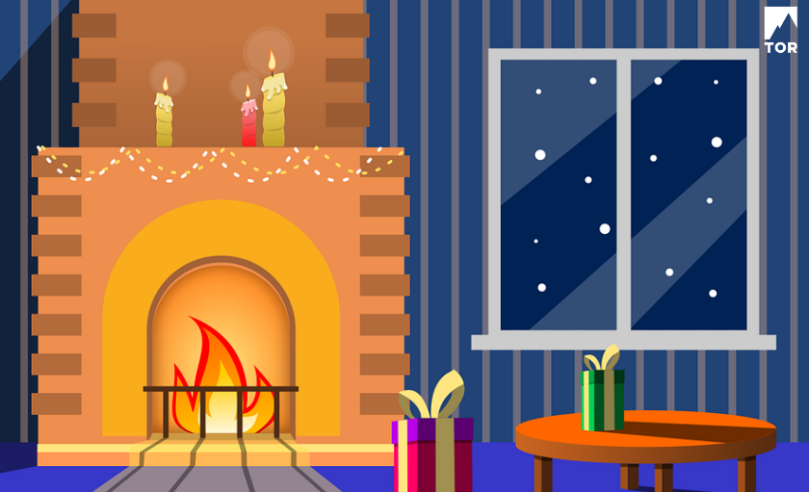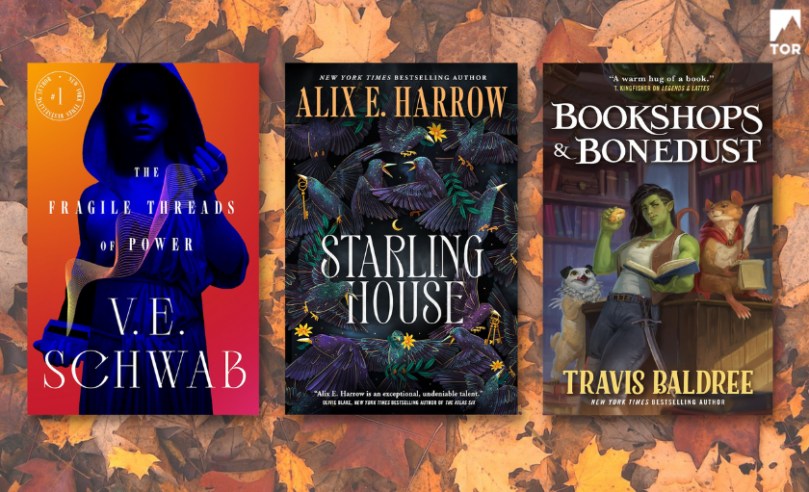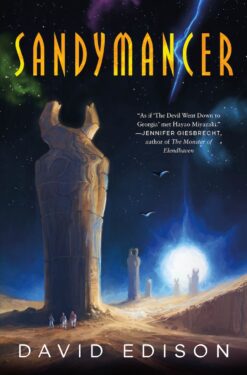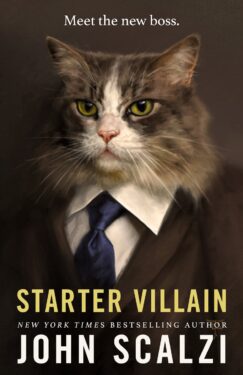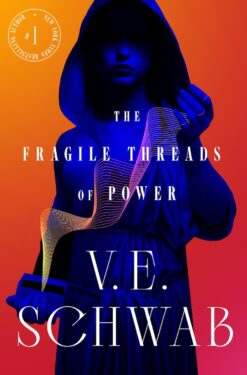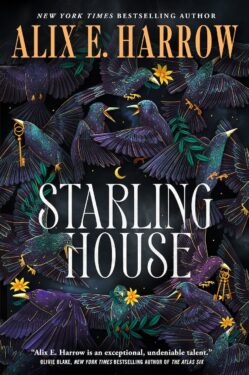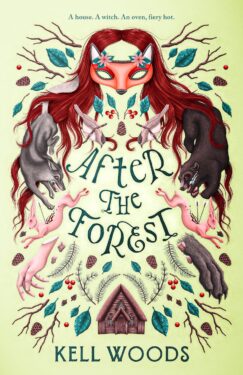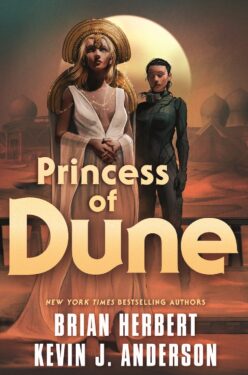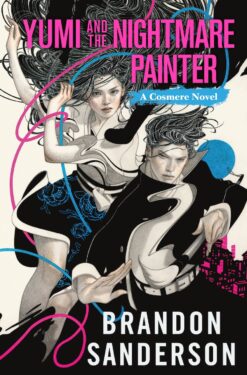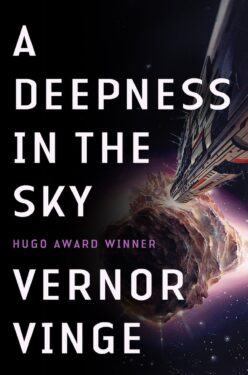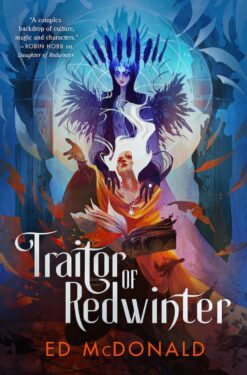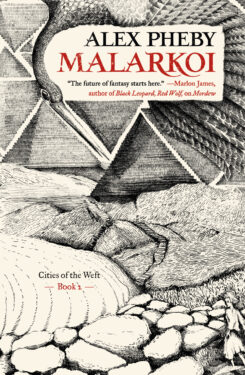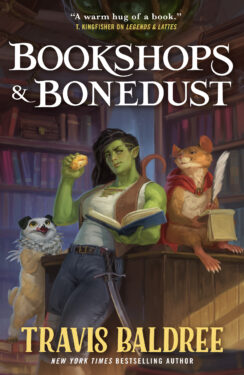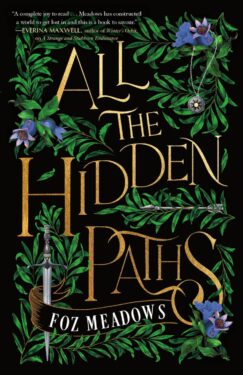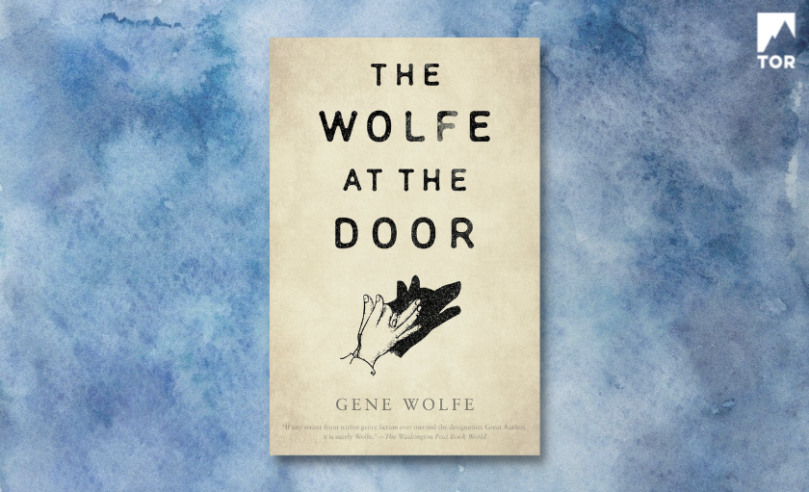




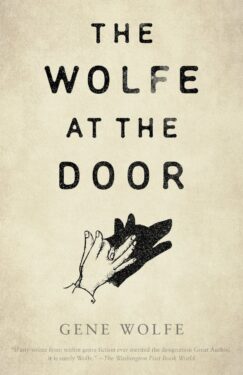
An all new collection from an American literary icon
The circus comes to town… and a man gets to go to the stars.
A young girl on a vacation at the sea meets the man of her dreams. Who just happens to be dead. And an immortal pirate.
A swordfighter pens his memoirs… and finds his pen is in fact mightier than the sword.
Welcome to Gene Wolfe’s playground, a place where genres blend and a genius’s imagination straps you in for the ride of your life.
The Wolfe at the Door is a brand new collection from one of America’s premiere literary giants, showcasing some material been seen before. Short stories, yes, but also poems, essays, and ephemera that gives us a window into the mind of a literary powerhouse whose world view changed generations of readers in their perception of the universe.
Please enjoy this free excerpt of The Wolfe at the Door by Gene Wolfe, on sale 10/31/23
ON A VACANT FACE A BRUISE
The sounds of the animals drew Tom in. Not the lights nor the music, nor even the smell of food. Not the dolls, for he did not know about the dolls then. Not even the birds, for he did not know about them either. No, it was just the animals, animals in general, the sounds and smells of the animals.
It was a dark night of the sort that seems sacred and perhaps is. He had been tramping along head down, hungry and tired, tramping down a dirt road leading to a town whose name he did not know. He had not seen the lights nor smelled the food yet, but he heard a leopard cough.
The sound stopped him in his tracks. He raised his head and looked around, his fatigue forgotten. A faint radiance glowed behind the hill to his left. He waited, listening.
A pig grunted. He had heard pigs often, and they had been real ones. Leopards, as far as his direct experience went, existed only as digital recordings.
An elephant trumpeted. He walked again, faster now, with longer strides, his head up. A side road appeared to lead behind the hill. A lion roared. After that, all was silence. The sacred stars winked down, unchanged; but it almost seemed that two of Herehome’s circling moons smiled.
There were wagons parked in the fields on either side of the road, many with people sitting silently on the seats. Others stood chatting in small groups. Lanterns hung from every wagon, but rung-oil was expensive, and few of those lanterns were lit. Horses were harnessed to every wagon, scrubby horses that waited in silence for something to happen, for food, water, or sleep, and never thought of freedom.
Tom joined one of the groups for a while, but heard only talk of the weather, and what the weather might do to the price of corn. The odor of horses and horse droppings hung over everything.
Nearer the lights, the breeze was freighted with new smells: sawdust and hay, frying food, roasting peanuts, and a hundred others. He walked faster, his fatigue forgotten.
“Here you are, son!” The prancing figure at the gate wore strange, bright-colored clothes and flourished a long, slender stick with a ribbon at the top. “Just one cred to get in, and there’s lots of free shows. That includes the big one!”
He leaped into the air and seemed to hang there for a moment, mouth and eyes wide, in defiance of gravity. “Just one cred, and you’ll never regret it. Why—”
“I don’t have any money,” Tom said, and the prancing figure lost all interest in him.
The fence was of transparent film supported by steel poles. Touching the film brought a flash of pain, but through it Tom could see milling crowds and high platforms upon which figures far stranger than the one at the gate stood talking. He knew something of fences and walked this one slowly, hoping for a low spot that would let him crawl under.
He found a tree instead. It was on the side opposite the gate, a big white doak someone had been saving until building timber was needed, a towering king among trees—one of whose level limbs stretched above the fence. He knew trees, too, and climbed this one.
It was a show almost better than the circus to sit up there in the dark, seeing while unseen himself. Elephants were lining up to go into the big tent, and the last and biggest had two trunks and four tusks. It raised its huge head, and raised both trunks higher still, and trumpeted again; and for a moment the whole circus fell silent.
Listening.
“Magic,” Tom heard the word before he realized that the voice was his own. “I don’t care if I don’t get a thing to eat here. Magic’s better.”
His voice disturbed a bird higher in the tree. There was a faint moan, like the moaning of a dove.
A naked woman wrapped in a dragon had taken the stage at the tent nearest his tree. The dragon writhed, hissed steam, and a moment later belched smoke and flames. The woman whirled, apparently delighted by her audience’s fear. Mouth to mouth, she kissed it—then wiped her own and said something to the people watching her that made them laugh.
A capering doll, near sister to the showman at the gate, pretended to be angry; her posture spoke louder than any words: YOU OUTRAGE DECENCY!
Leaping into the air, she came to earth in a new position: BEGONE, VILE WENCH!
The audience laughed louder than ever.
Another leap: I SHALL DEAL WITH YOU SUBSEQUENTLY.
The dragon-woman left to applause, and the doll (whose tatterdemalion clothing might once have been a clown’s) bowed with spread hands.
She had no sooner straightened up than three girls in transparent gowns pranced onto the stage. To music Tom could scarcely hear, they danced with disciplined gaiety, skipping with their knees above their waists and kicking their heels higher than their heads, dancing as one at some times, and as three at others.
“Red, Yellow, and Brown,” Tom muttered. And then, “I like Red the best.”
A voice above him muttered, “Are those their names?” It spoke slowly, and a little sadly.
Tom looked up and whispered, “You’re watching, too?”
“Watching you.”
“I’m not doing anything,” Tom said.
“That’s good,” the slow, sad voice told him.
Yellow and Brown gestured gracefully while their feet flew. Red danced with them, and blew Tom a kiss.
The voice above him said, “She saw you.”
He nodded. “Will she tell anybody?”
“She might.”
“Will they chase us?”
“Don’t believe they will.” The voice above Tom sounded thoughtful.
He turned his attention back to the stage. The dancers had gone, replaced by a man who juggled torches, catching them by the burning ends.
“They might chase you,” the voice above Tom said. “Not me. Probably. Do you eat birds?”
Tom, who was very hungry indeed, licked his lips. “I like chicken.”
“Well, if you like chickens you wouldn’t eat chicken, would you? You’d have to kill it to keep it from moving, wouldn’t you? And you wouldn’t want to kill it if you liked it. Are you a cat?”
Tom who had found both earlier questions confusing, answered only the last. “No, I’m not.”
“That’s good. Cats eat birds like me.”
“Magic,” Tom said.
“Magic?” inquired the bird.
Tom nodded without bothering to wonder whether the other could see him. “Yep, magic. I heard one time about a talking bird. Only I didn’t believe it.”
“What about talking cats?”
“I’ve never heard of one. Have you?”
“Have you looked behind you?”
Tom turned, thinking there might be a talking cat there. There was none; but through the leaves, faintly, he could make out something—a squat dome like the lid of a pot made large—so big that it seemed it must certainly occupy the whole of a meadow.
“If ever you go in there,” the bird told him, “you may meet talking cats. Don’t listen to them.”
“I don’t want to go in there,” Tom said. The squat dome seemed dark and threatening. “I want to get into the circus. I could crawl out onto this limb and drop down, but lots of people would see me.”
“The dancers have already seen you,” the bird told him. “So have I.”
“Are you going to tell?”
The bird (if it was a bird) did not reply.
After some minutes had passed, Tom said, “You could just fly down there.”
“Don’t want to.”
The cooking smells were making Tom’s mouth water. He wiped it with his shirtsleeve. “I’d like to get something to eat.”
“So’d I,” the bird told him.
“If I could get down there and not be kicked out, I’d get something and throw some out for you.”
“Would you really do that?” the bird asked.
“Sure!”
“The lights will go off if you wait long enough. When there are fewer people, there will be fewer lights. When there are none, there will be no lights at all. You could drop down then.”
“How long?” Tom asked; but there was no reply.
It seemed a long time, and in the end, Tom did not wait for the last lights to go out. When the circus lot grew dim, and farmers and farmwives, grandparents and tired and irritable children were streaming out the gate, Tom crawled along the limb, hung from it for half a second, and let himself drop.
“I don’t like to hook things,” he told a vendor. “And those sausages you’ve got left aren’t going to be any good after tonight anyhow. If you’ll give me one now—just one, mind—I promise I’ll never, ever, hook anything from you.”
“I’m not giving you a goddam thing,” the vendor told him.
It was what Tom had been expecting. As soon as the words were out of the vendor’s mouth, he snatched two sausages and ran.
He ate one, finding it still warm and very good, and ate half the other more slowly. He threw the remaining half over the fence and into the leaves of the big white doak. It fell out again, stirring the leaves as it came down; but Tom had the satisfaction of seeing a large, dark bird follow it. It seemed (or at least it almost seemed) that the large dark bird was wearing a hat, although Tom knew it could not be true.
After that, he decided that a drink of water would be good, and a place to sleep even better. He recalled the red-haired dancer who had blown him a kiss. She might, he thought, show him kindness. He circled the small tent from which she—with the other dancers, the dragon charmer, and the juggler—had emerged, and crawled beneath the edge of a strange, thin cloth that was certainly not canvas.
It was darker in the tent than it had been outside, and the lot outside was becoming dimmer by the minute. Tom explored with his hands, finding a long box like a coffin and a low and splintery structure that might have been a small stage. When he noticed the hum—a tuneless humming that might have been mechanical—he tried to decide whether it had been there the whole time or had begun after he entered. In the end he decided it had been present the whole time, though he was far from sure of it.
“Hello?” he called softly. Then a little more loudly, “Is there anybody in here?”
There was no answer. The hum persisted.
“I’m just looking for a place to sleep.” Ready to run, he watched the darkness. “I won’t take anything or do any harm if you’ll let me sleep in here. It would be just for tonight.”
There was no answer, as before.
“I—I’m a friend of the bird’s.” Tom wished now that he had asked the strange bird’s name. “I think he’ll tell you I’m a nice person.”
Emboldened by the quiet dark and the flat, unvaried humming, Tom grew almost conversational. “I’ve left home, and I’m never, ever going back. I saw this, and—and it smelled wonderful . . .”
The hum altered, if only by the merest trifle. It was now higher pitched.
“All the lights, so I thought somebody might help me.”
A single blue bulb kindled on the other side of the tent, which was by no means large.
“I’m a hard worker, and I’ll work hard for anybody who’ll help me. I can hoe and milk.”
A green bulb kindled above Tom’s head. And the humming stopped.
By the light of the two bulbs, he could see the interior of the tent quite well. There were indeed long boxes like coffins scattered here and there: five of them, and several other boxes, too. A steep and narrow flight of metal steps led from the entrance up to the stage outside, which was higher than Tom himself. The ground was covered with wood shavings and sawdust, as the ground outside had been. It looked clean, and to Tom (who by that time was very tired) it looked deliciously soft as well.
“The red-headed one . . .” Tom paused, at a loss for words. “She… Well, she looked nice, and I thought maybe she wouldn’t mind if I slept in here. And maybe I could help her tomorrow. Or you, or both of you.”
A red bulb kindled at the middle of the tent. The lid of one of the long boxes flew open and someone who had been inside the box sat up as though jerked upright. It took Tom a second or more to identify the strange person who leaped from the box.
It was Red. “Leave! Go at once, or I’ll call the lion tamer.” Her voice was soft and sweet, belying her words.
“I was watching you from the tree,” Tom explained. “You blew me a kiss and looked so nice and the way you danced was wonderful. So I thought, maybe ”
“Naturally I danced wonderfully.” Red patted her hair and looked down her nose at Tom. “Then I was possessed by Stromboli the Great, the envy of the profession and a man who might make a clothespin dance as well as I. Now, alas . . . Alas . . . At present, alas ” The other hand wiped her eyes with the hem of her transparent gown.
“Don’t cry.”
Red bent until she was not much taller than Tom himself. “Do you know who possesses me now? It’s only the wretched Maria, his wife, a rag empty of all understanding. A fool bereft of talent. Thus you see me for what I am.”
A score of fresh lights kindled.
“A contemptible assemblage of sticks and servos, a poor, vile, mechanical toy.”
“You’re beautiful,” Tom said. His voice rang with sincerity. “You’re really, truly beautiful.”
Another box opened, and the head of the dragon peeped out. “She is not!”
“She is too!”
“Is not!” the dragon roared.
“Is too!”
For a second or more the dragon was silent. Then it said, in a threatening tone, “I’ll bite you…”
Copyright © 2023 from Gene Wolfe





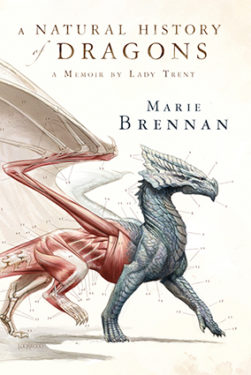 A Natural History of Dragons by Marie Brennan
A Natural History of Dragons by Marie Brennan The Wolfe at the Door by Gene Wolfe
The Wolfe at the Door by Gene Wolfe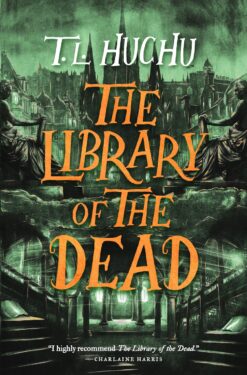 The Library of the Dead by T.L. Huchu
The Library of the Dead by T.L. Huchu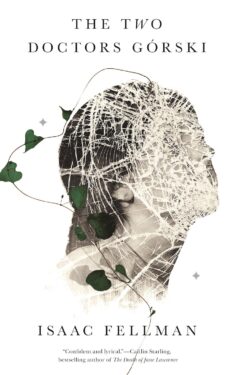 The Two Doctors Górski by Isaac Fellman
The Two Doctors Górski by Isaac Fellman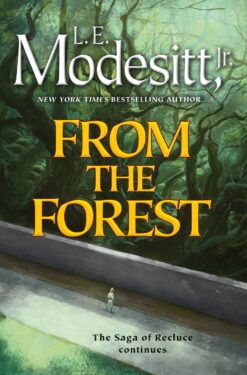 From the Forest by L. E. Modesitt Jr.
From the Forest by L. E. Modesitt Jr.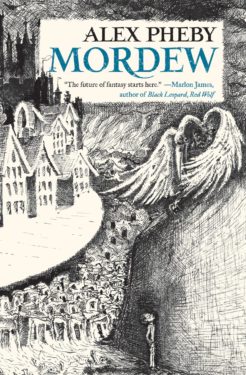 Mordew by Alex Pheby
Mordew by Alex Pheby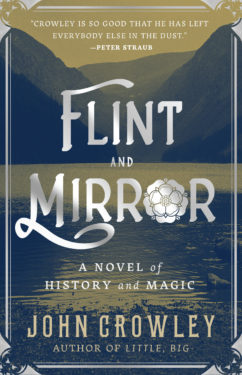 Flint & Mirror by John Crowley
Flint & Mirror by John Crowley
